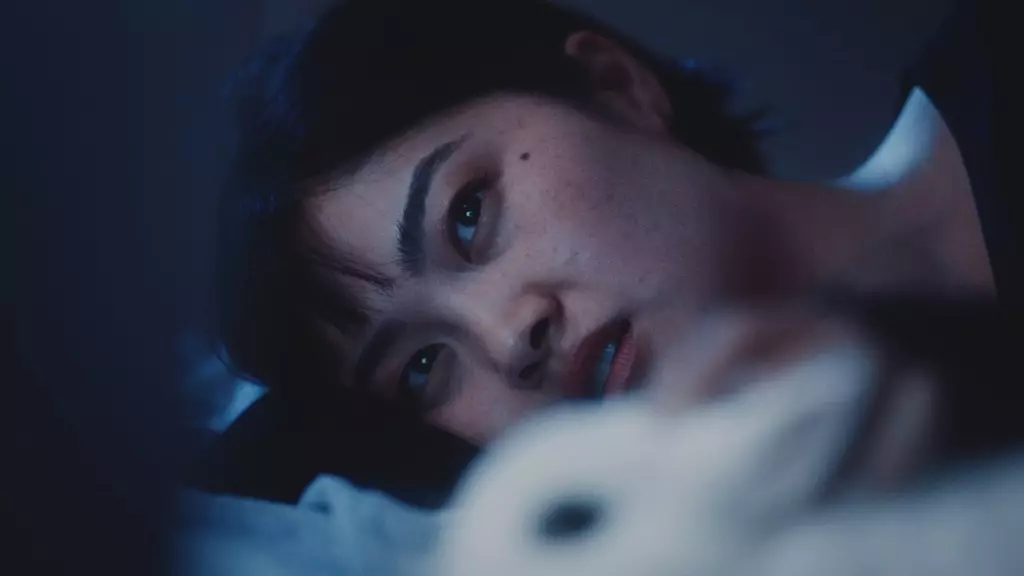Debuting as a multifaceted exploration of personal identity, Katarina Zhu’s film ‘Bunnylovr’ highlights the intricate interplay between self-fulfillment, familial relationships, and the impact of modern technology on interpersonal connections. Set against the bustling backdrop of New York City, the film centers on Becca, a Chinese American woman in her twenties, played by Zhu herself. This character provides an insightful lens into contemporary struggles, particularly those involving self-identity, the effects of privilege, and the intricacies of emotional health.
The Complicated Layers of Becca’s Life
In ‘Bunnylovr’, Becca’s life embodies the challenges of navigating relationships in a society where objectification is the norm. As she juggles the demands of her cam-girl job with her attempts to forge meaningful connections, Zhu effectively illustrates the toll that external perceptions and expectations can take on a young woman’s psyche. Becca’s struggle reflects a broader commentary on the ways women are often reduced to their utility in others’ lives—an experience that might resonate with many viewers.
The character’s interaction with her estranged father, William, adds another layer of complexity to her narrative. Their unexpected encounter serves as a catalyst for Becca’s emotional exploration, forcing her to confront issues of abandonment and unresolved feelings. William embodies the archetype of a father whose presence simultaneously comforts and complicates; he relies on Becca for emotional and practical support yet epitomizes the kind of toxic masculinity that has shaped her experiences with other male figures.
The relationships in Becca’s life are both enlightening and burdensome, revealing the struggles of a people-pleaser caught in a cycle of seeking validation from others. Her friendships, especially with Bella, an artist who exploits their bond for creative inspiration, resonate with a poignant truth: art is often created at the expense of authenticity in personal connections. This dynamic underscores the film’s feminist undertones, posing the question of whether true friendship can exist when one party is commodified for the benefit of the other.
Additionally, her complicated interactions with John, a regular client who seeks to possess her through virtual companionship, shed light on the struggles many face in maintaining their autonomy in digital realms. As Becca becomes more entangled in this toxic relationship, the allure of financial compensation further distorts her perception of affection and worth.
Central to Becca’s journey is the live bunny she names Milk. Initially receiving this gift from John feels loaded with expectations and discomfort. However, as Becca learns to nurture and bond with the animal, the bunny evolves into a profound symbol of agency and self-care. The act of caring for another living being stands in stark contrast to the depletion she faces in her human interactions. This farmhouse-like simplicity offers a refuge where Becca explores her capacity for affection and responsibility, which had previously been overshadowed by the demands of toxic relationships.
Moreover, Milk serves as a mirror to Becca’s emotional growth and transformation. With every step she takes in nurturing her pet, she gradually learns to prioritize herself. This shift is crucial, as it emphasizes the film’s overarching themes of self-love and the importance of establishing healthy boundaries in relationships.
Bunnylovr emerges as more than just a personal story for Zhu; it acts as a microcosm reflecting broader societal issues concerning identity and intimacy in the digital age. The film captures the balancing act of cultivating genuine connections while facing the pitfalls of digital interactions fraught with objectification and alienation. Zhu’s storytelling succeeds in maintaining a balance between humor and emotional depth, making Becca’s journey relatable and painfully real.
In sum, ‘Bunnylovr’ navigates the tumultuous waters of personal fulfillment against the backdrop of life’s challenges. Like its protagonist, the film itself grapples with the complexities of modern existence, ultimately guiding viewers through a poignant journey of self-discovery. In an era where virtual engagement reigns supreme, Zhu’s narrative urges audiences to remember the significance of authentic connection—both with others and within oneself.


Leave a Reply